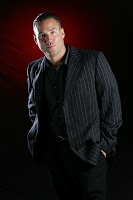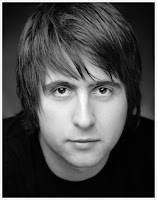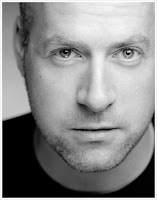
An actor's headshot/resume, is their most important possession. That is what casting directors look at when they are casting. They look to see how much experience you have, and if your look is the right one for the role. Agents also will look at that, along with polaroids they take of you, to see if your look is marketable. A head shot is something that captures your look, without making you look uncomfortable. Actors headshots can be many different styles/looks. Some actors choose to do a color headshot from the chest up, some actors that want to do some modeling will take one of more of their body in color. Most actors though, will use a black and white, chest up photo. This is the most common.

The most important with your headshot and resume, is to not lie. Lying is the worst thing anyone can do on a headshot/resume. If a director catches you lying on a resume, you will get blackmailed, and in the theatre world, blackmailing is the worst thing that can happen. The director will send your headshot/resume to every director he knows, with a note saying he is a liar, don't cast him. Now, you are screwed. So the biggest advice i have is don't lie. With your headshot, make sure its not completely photoshopped. Everyone wants to make themselves look better. Small touchups are ok. But don't change the color of your hair in photoshop. And also, with changing your hair color, if you do change it, you will have to get a new headshot. Your headshot has to be up to date. So every time you change your look, you will need a new headshot. Or if you have facial hair, you will want to take two shots. One with the facial hair, one without. See which one looks better. You should also have a couple outfits with you when you go to get the picture taken.

On your resume, you are going to want to list as much information about your experience as you can. On the top is your name. Than underneath you put your union affiliation (if applicable, otherwise leave blank). Than underneath, put your measurments and contact information. NEVER NEVER NEVER put your own information. If you have a manager or an agent, put their telephone number. If you have a management company/agency and they give you an e-mail, put that down. If you have neither, create a yahoo/g-mail/hotmail account and make it solely for your acting. For the telephone number, there are answering services where you can call, and they will give you a number that people can call to leave you voicemalls. You can find them in the phonebook. Then after you've listed that, you want to put the shows/films you've been in. Start with theatre, than go to film, than tv, than commercials. You want to list the show, the director, and the part. You can put the year, but that isn't as important as the other three things. Same thing with the other 3 categories. After that, you want to put your training. What classes you've taken, the teacher, where you've taken them. Any information you have. Put it down. Once you have that down, the next category is your special skills. If you can play baseball, football, any instrument, if you can juggle. Whatever it may be, you never know what directors could impose of you to do on stage or on film. So its always a good idea to list as much as you can under that category. This category is the only one where you should just do a basic list. List everything and just separate it with a comma. No need to put each one on a separate line.
Your headshot/resume as an actor should be 8x10. But some actors will do a 4x6. Most of the time models will use a 4x6. Either one is fine. Directors won't criticize you for the size of your resume as long as it is one of those two, or close to it. Dont waste time making sure it is exact. As i stated earlier, your headshot resume is your most valuable possesion, and you should always carry a couple around with you. So go out there and get your headshot taken!